A few years ago, in a post titled Turbulence, I confessed that I was experiencing a major crisis. It was not only the creativity crisis, but an all permeating, comprehensive one. Back then, I used the words of Andrei Tarkovsky to clarify things and help myself out of the confusion caused by my struggles and suffering. Now, I am again borrowing the inspirational thoughts of this great Russian filmmaker, one of the greatest artist among the filmmakers of the 20th century, to announce my artistic regeneration.
All the works presented in this new post have been done over the past few months. Most of the pictures are in-progress images of the paintings created for my upcoming exhibition in Paris, as well as for my new book project.
Before going on to the particular problems of the nature of cinematic art, I feel it is important to define my understanding of the ultimate aim of art as such. Why does art exist? Who needs it? Indeed does anybody need it? These are questions asked not only by the poet, but also by anyone who appreciates art — or, in that current expression all too symptomatic of the twentieth-century relationship between art and its audience — the ‘consumer’.
Many ask themselves that question, and anyone connected with art gives his own particular answer. Alexander Blok said that ‘the poet creates harmony out of chaos.’. . . Pushkin believed the poet had the gift of prophecy… Every artist is ruled by his own laws but these are by no means compulsory for anyone else.
In any case it is perfectly clear that the goal for all art — unless of course it is aimed at the ‘consumer’, like a saleable commodity — is to explain to the artist himself and to those around him what man lives for, what is the meaning of his existence. To explain to people the reason for their appearance on this planet; or if not to explain, at least to pose the question.
To start with the most general consideration, it is worth saying that the indisputably functional role of art lies in the idea of knowing, where the effect is expressed as shock, as catharsis.
From the very moment when Eve ate the apple from the tree of knowledge, mankind was doomed to strive endlessly after the truth. First, as we know, Adam and Eve discovered they were naked. And they were ashamed. They were ashamed because they had understood; and then they set out on their way in the joy of knowing one another. That was the beginning of a journey that has no end. One can understand how dramatic that moment was for those two souls, just emerged from the state of placid ignorance and thrown out into the vastness of the earth, hostile and inexplicable.
‘With the sweat of thy brow shalt thou earn thy bread…’
So it was that man, ‘nature’s crown’, arrived on the earth in order to know why it was that he had appeared or been sent.
And with man’s help the Creator comes to know himself. This progress has been given the name of evolution, and it is accompanied by the agonizing process of human self-knowledge.
In a very real sense every individual experiences this process for himself as he comes to know life, himself, his aims. Of course each person uses the sum of knowledge accumulated by humanity, but all the same the experience of ethical, moral self-knowledge is the only aim in life for each person, and, subjectively, it is experienced each time as something new. Again and again man correlates himself with the world, racked with longing to acquire, and become one with, the ideal which lies outside him, which he apprehends as some kind of intuitively sensed first principle. The unattainability of that becoming one, the inadequacy of his own I, is the perpetual source of man’s dissatisfaction and pain.
And so art, like science, is a means of assimilating the world, an instrument for knowing it in the course of man’s journey towards what is called ‘absolute truth’.
That, however, is the end of any similarity between these two embodiments of the creative human spirit, in which man does not merely discover, but creates. For the moment it is far more important to note the divergence, the difference in principle, between the two forms of knowing: scientific and aesthetic.
By means of art man takes over reality through a subjective experience. In science man’s knowledge of the world makes its way up an endless staircase and is successively replaced by new knowledge, with one discovery often enough being disproved by the next for the sake of a particular objective truth. An artistic discovery occurs each time as a new and unique image of the world, a hieroglyphic of absolute truth. It appears as a revelation, as a momentary, passionate wish to grasp intuitively and at a stroke all the laws of this world — its beauty and ugliness, its compassion and cruelty, its infinity and its limitations. The artist expresses these things by creating the image, sui generis detector of the absolute. Through the image is sustained an awareness of the infinite: the eternal within the finite, the spiritual within matter, the limitless given form.
Art could be said to be a symbol of the universe, being linked with that absolute spiritual truth which is hidden from us in our positivistic, pragmatic activities.
Art is born and takes hold wherever there is a timeless and insatiable longing for the spiritual, for the ideal: that longing which draws people to art. Modern art has taken a wrong turn in abandoning the search for the meaning of existence in order to affirm the value of the individual for its own sake. What purports to be art begins to look like an eccentric occupation for suspect characters who maintain that any personalized action is of intrinsic value simply as a display of self-will. But in artistic creation the personality does not assert itself, it serves another, higher and communal idea.
The artist is always a servant, and is perpetually trying to pay for the gift that has been given to him as if by a miracle. Modern man, however, does not want to make any sacrifice, even though true affirmation of self can only be expressed in sacrifice. We are gradually forgetting about this, and at the same time, inevitably, losing all sense of our human calling.


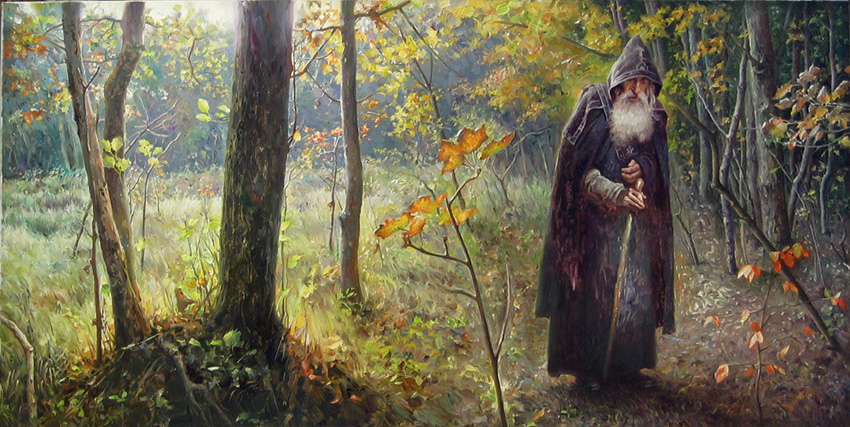
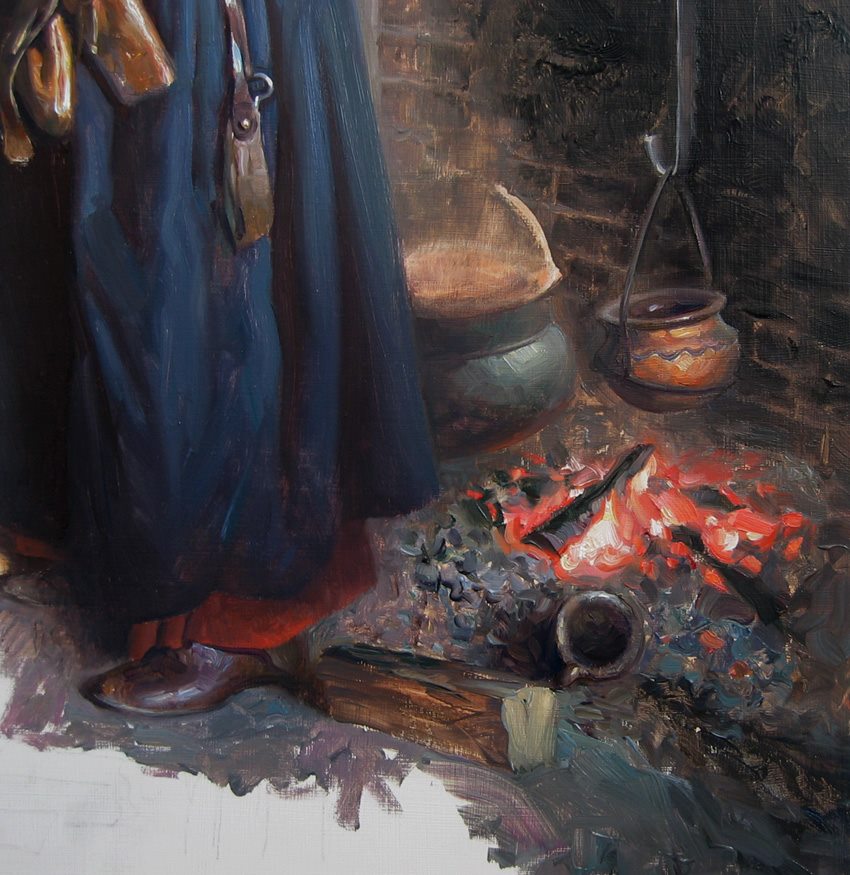

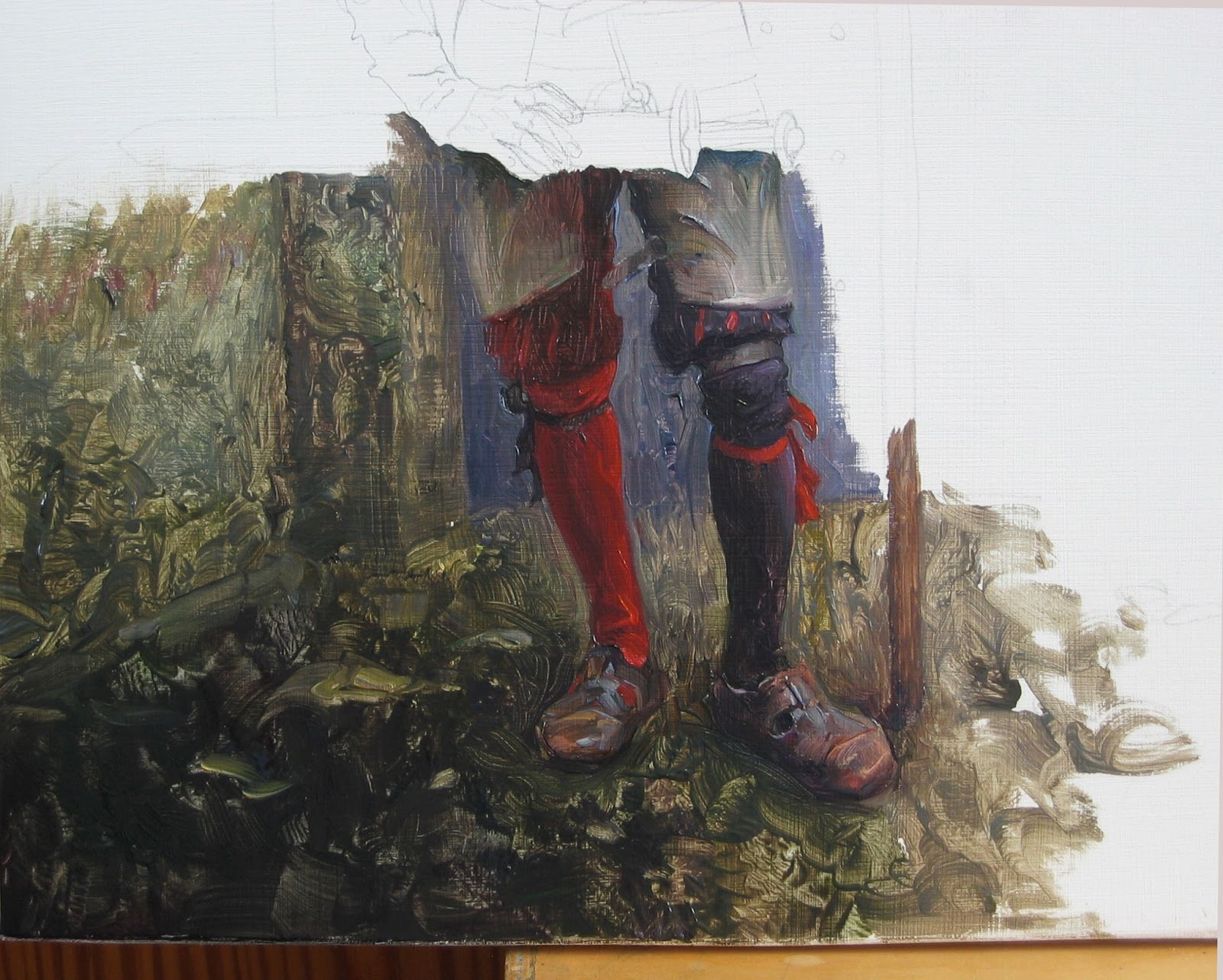

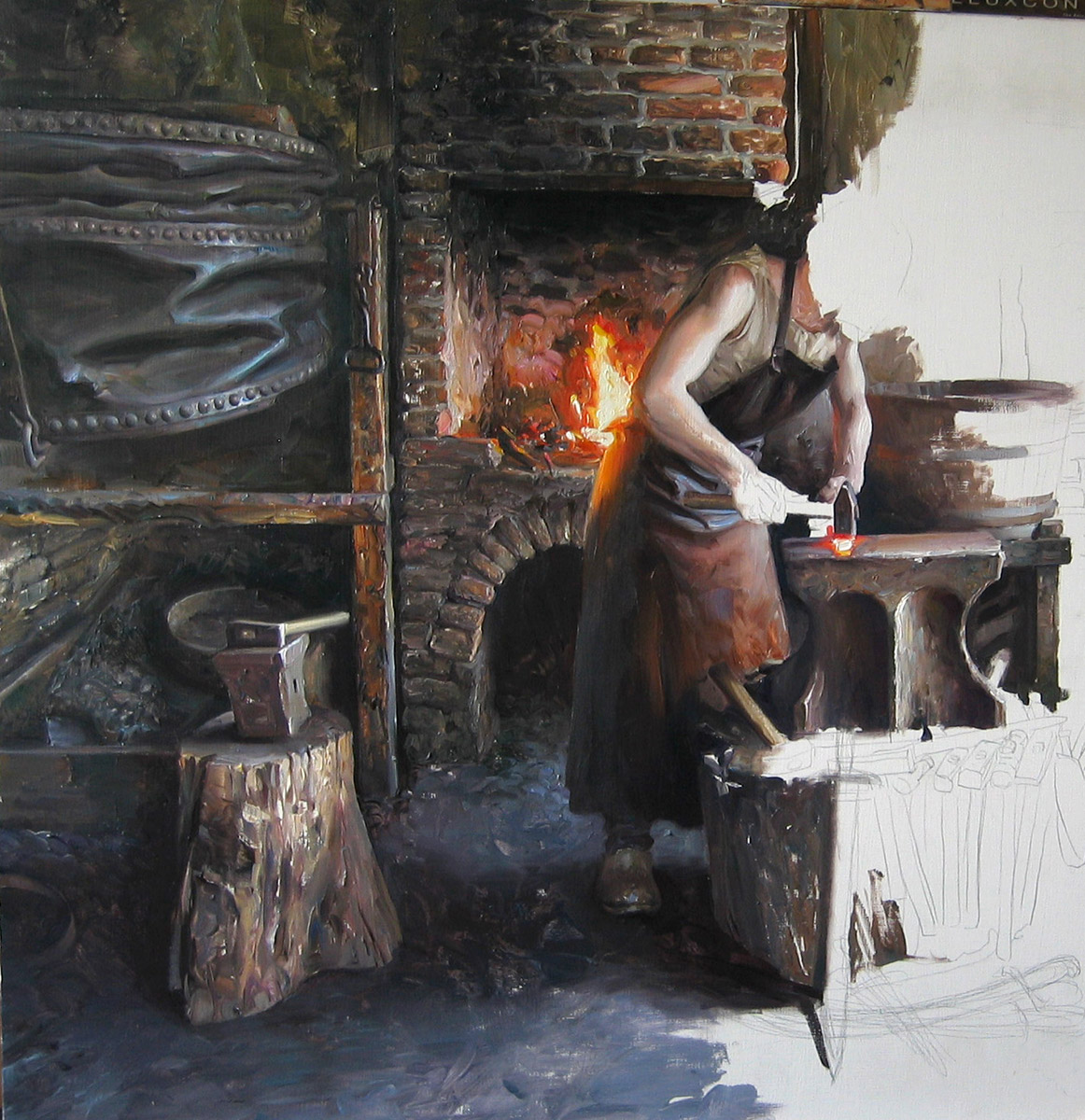
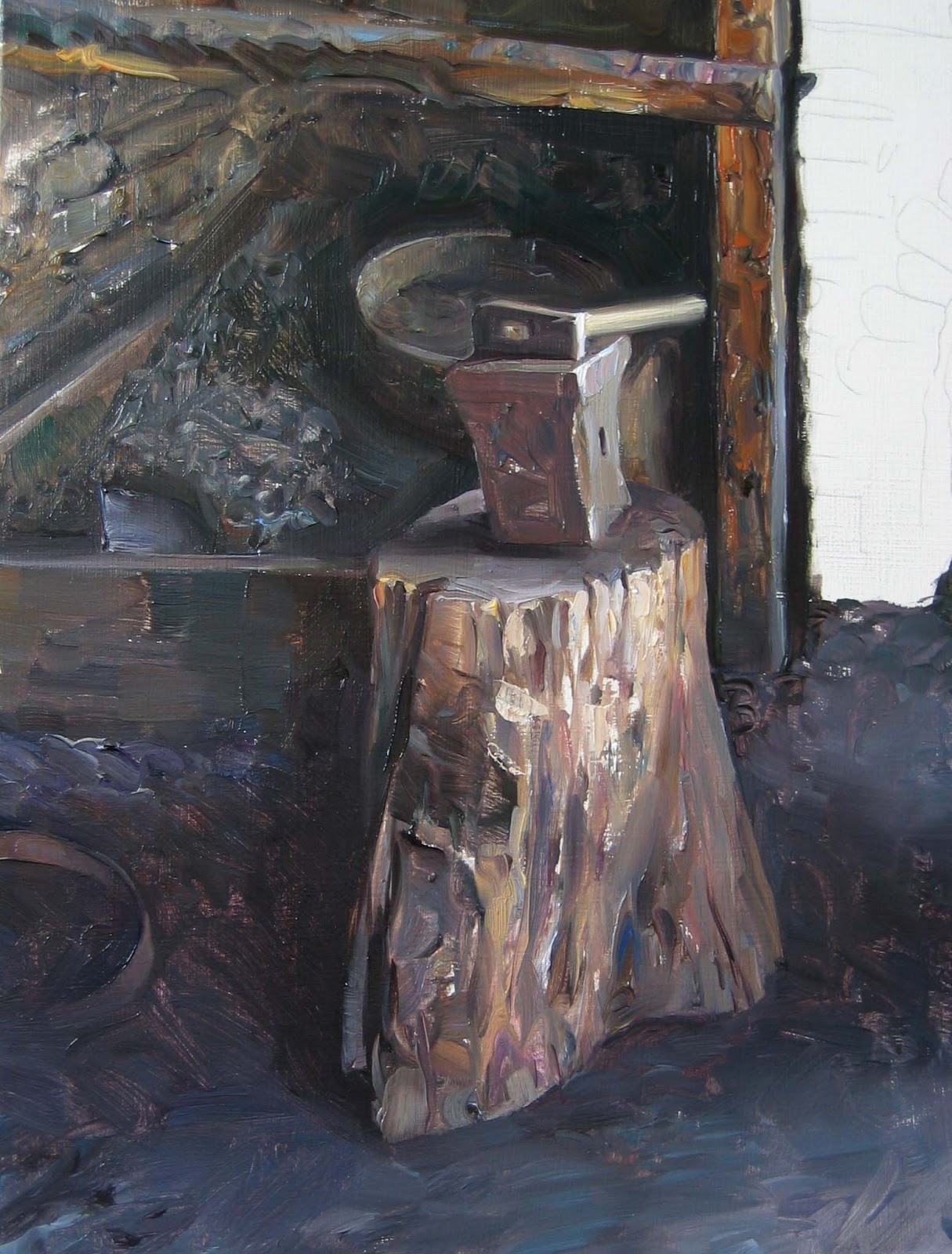
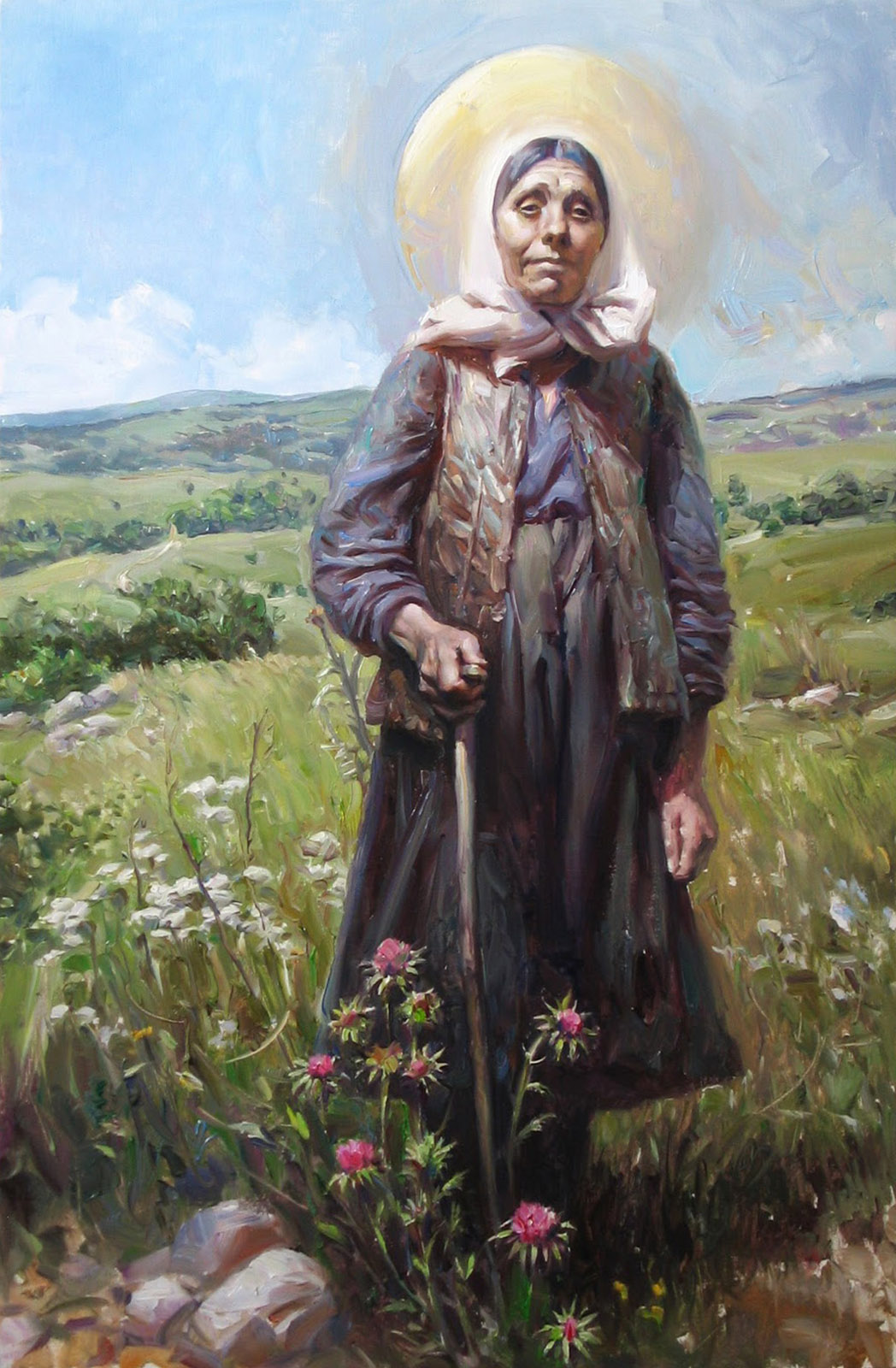

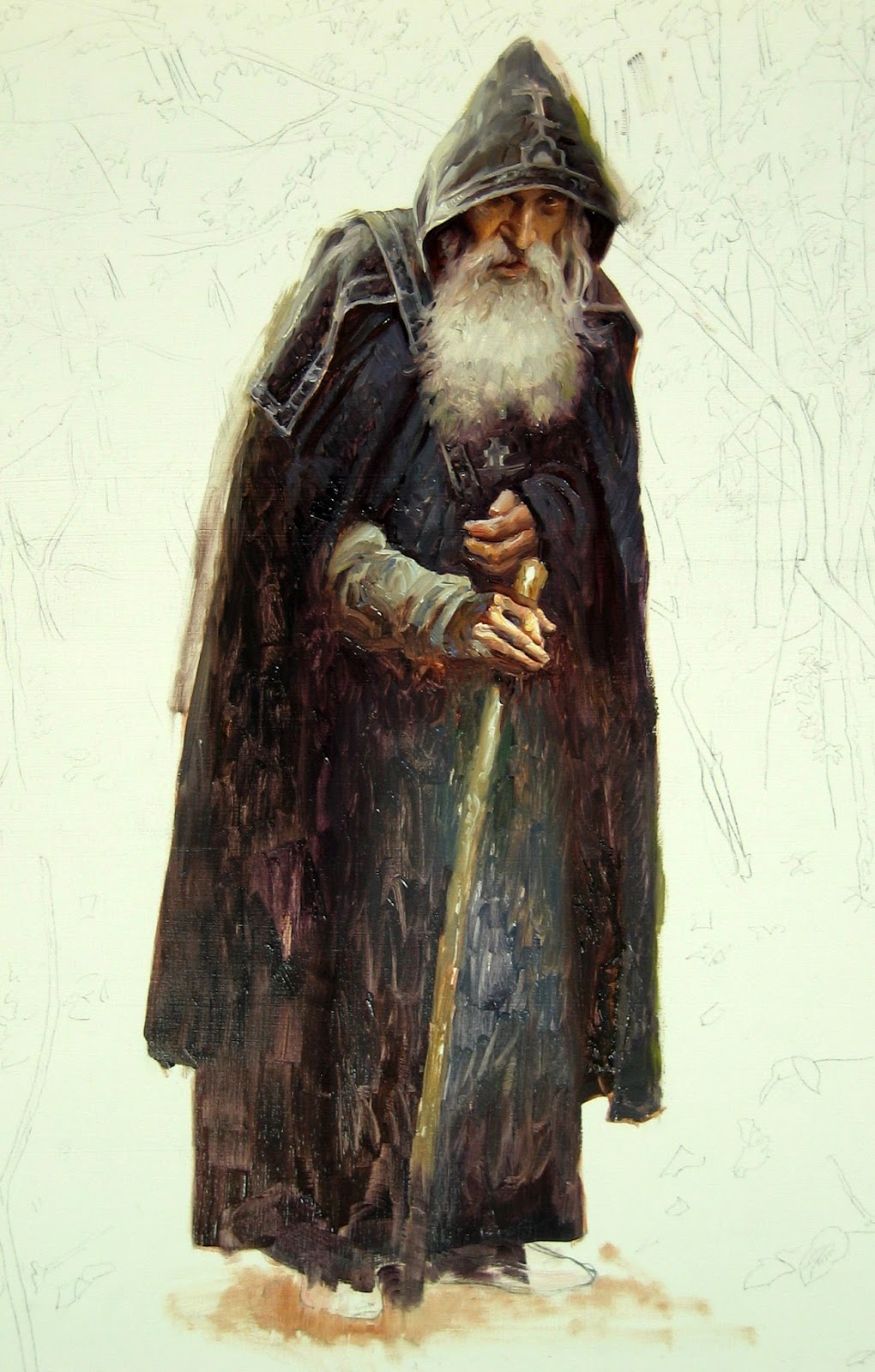
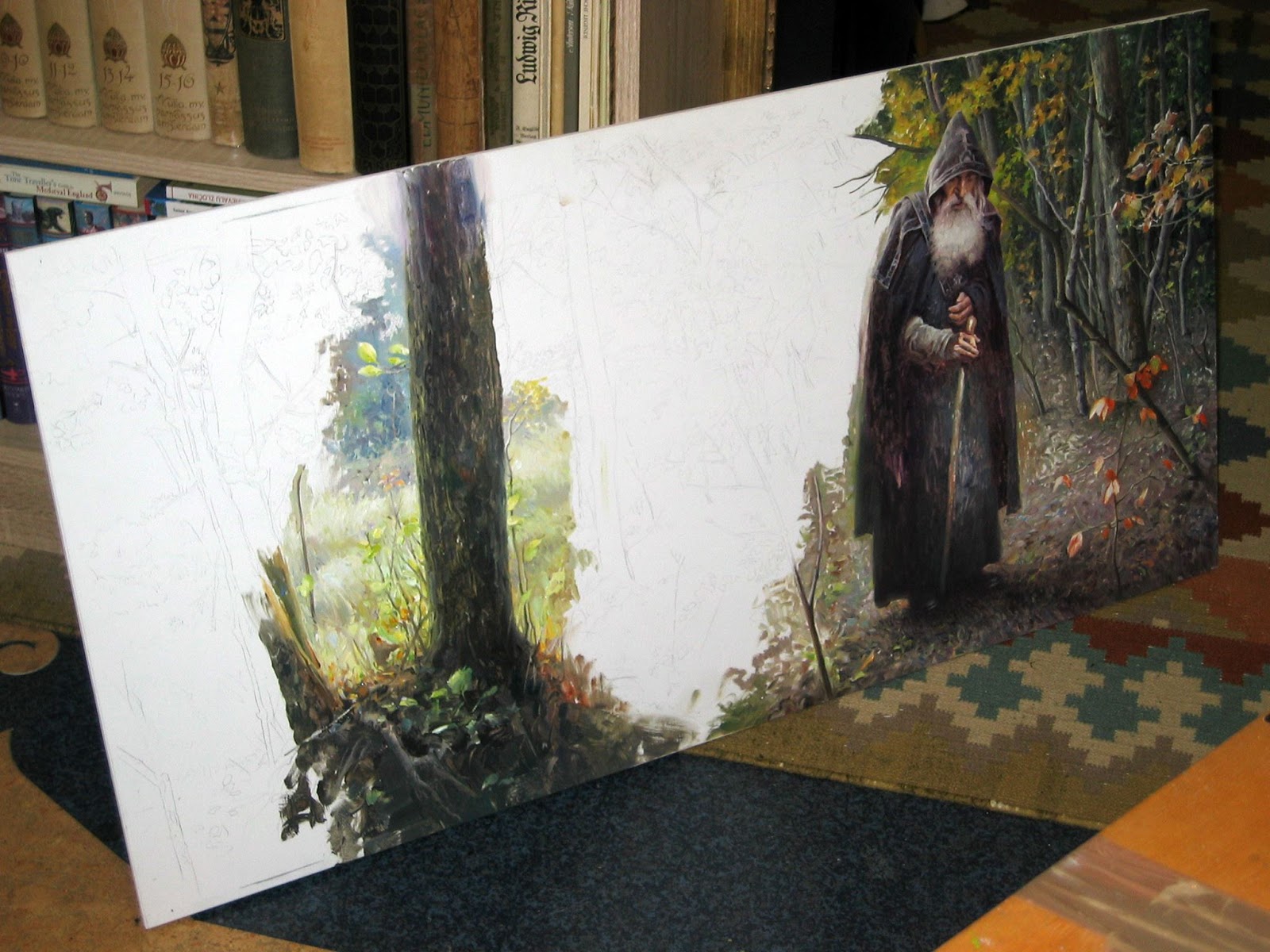
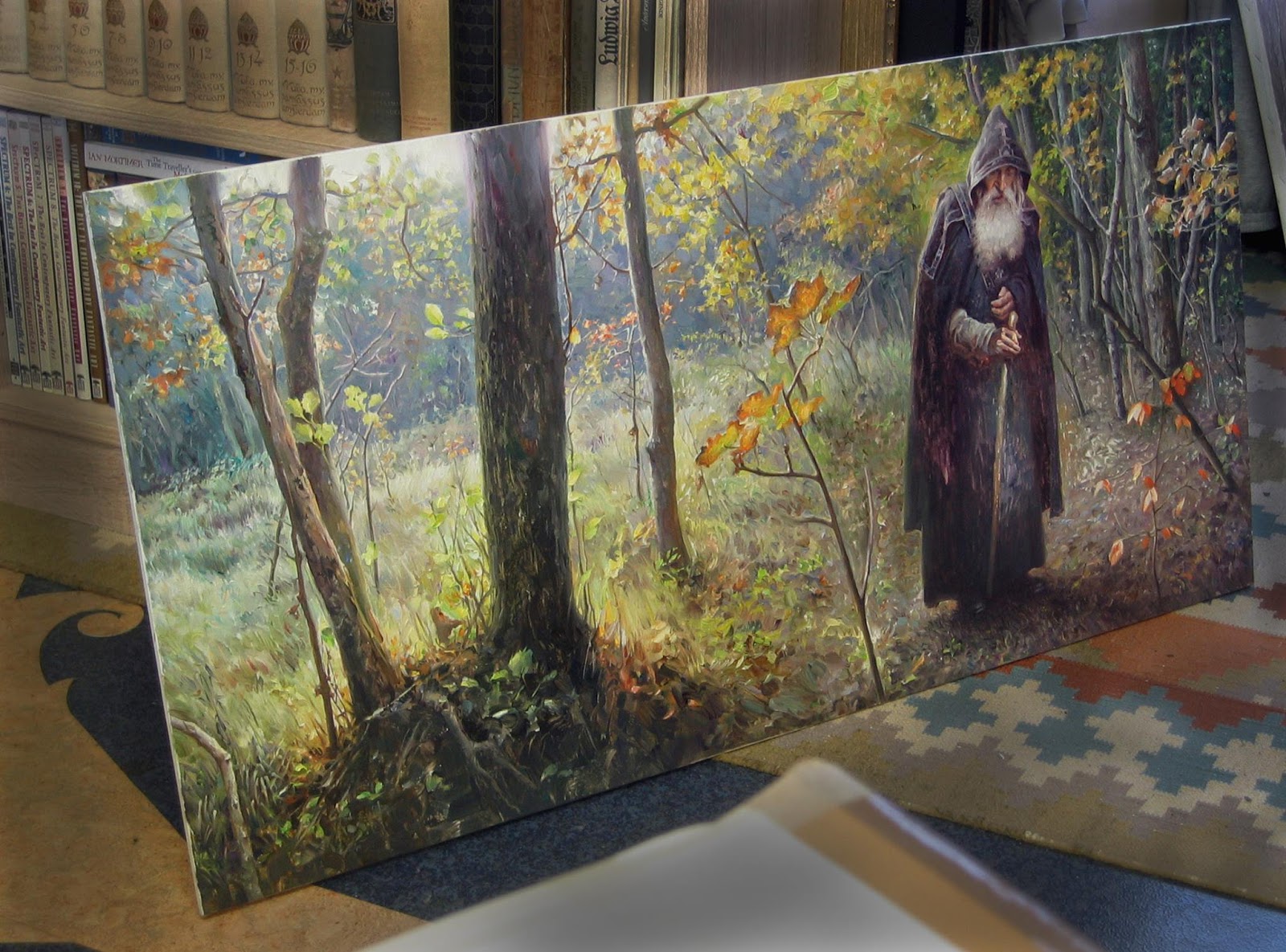
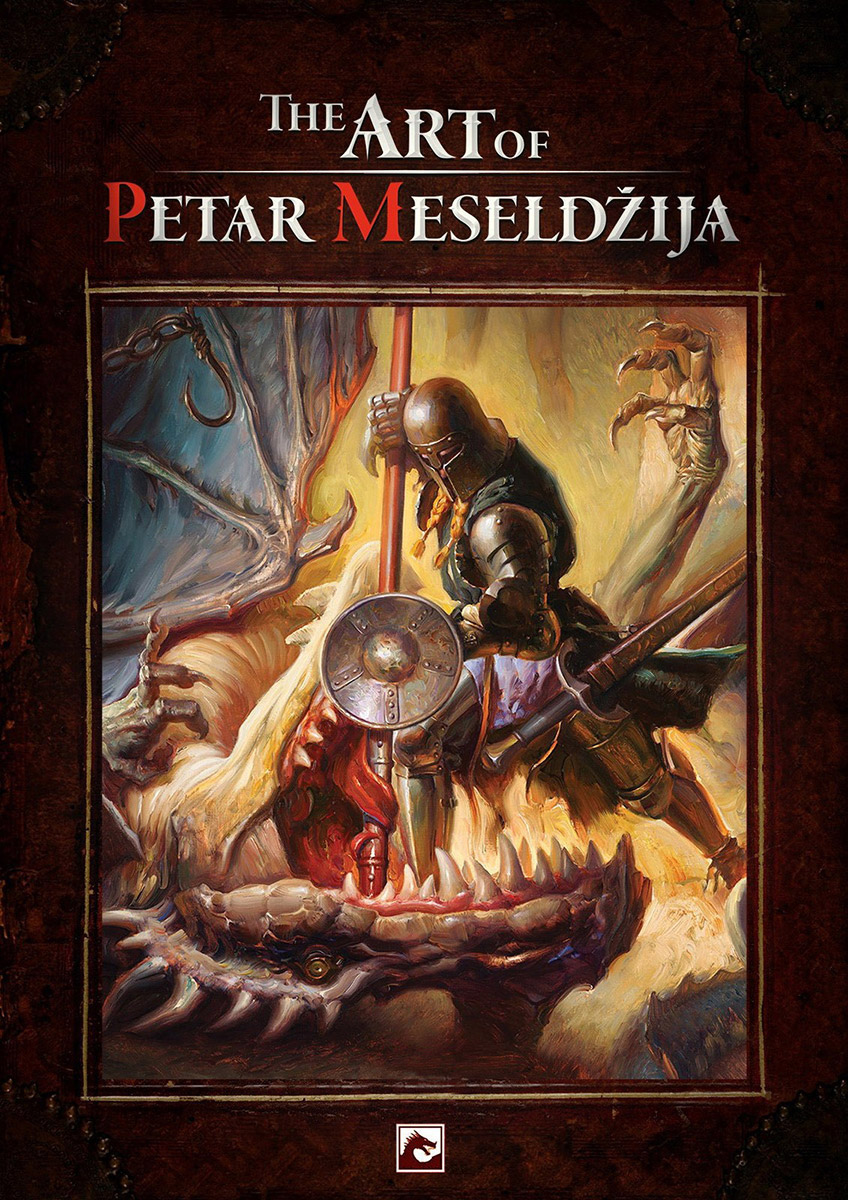
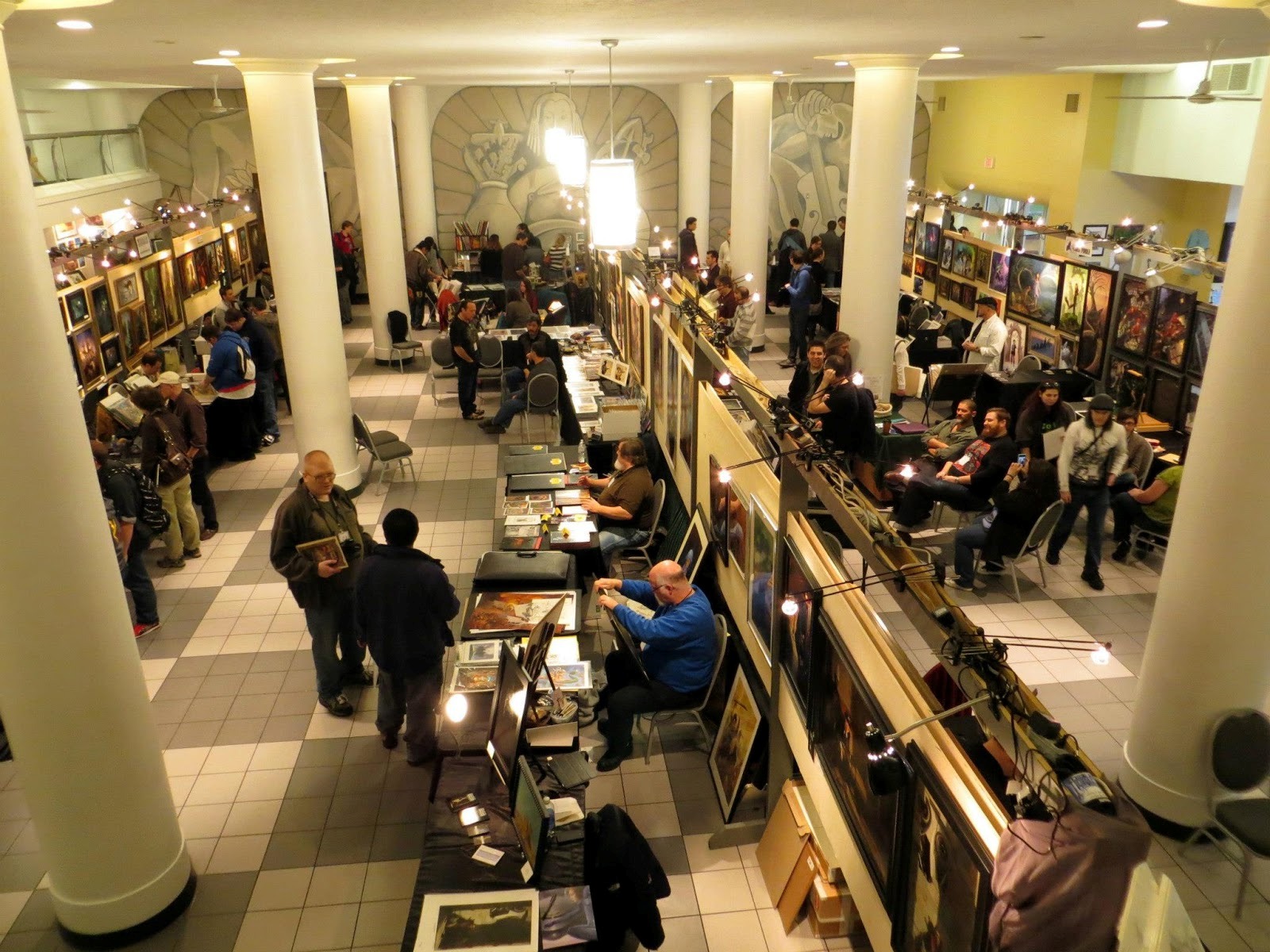
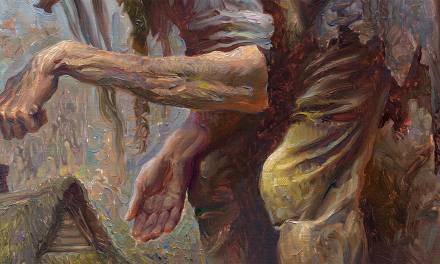
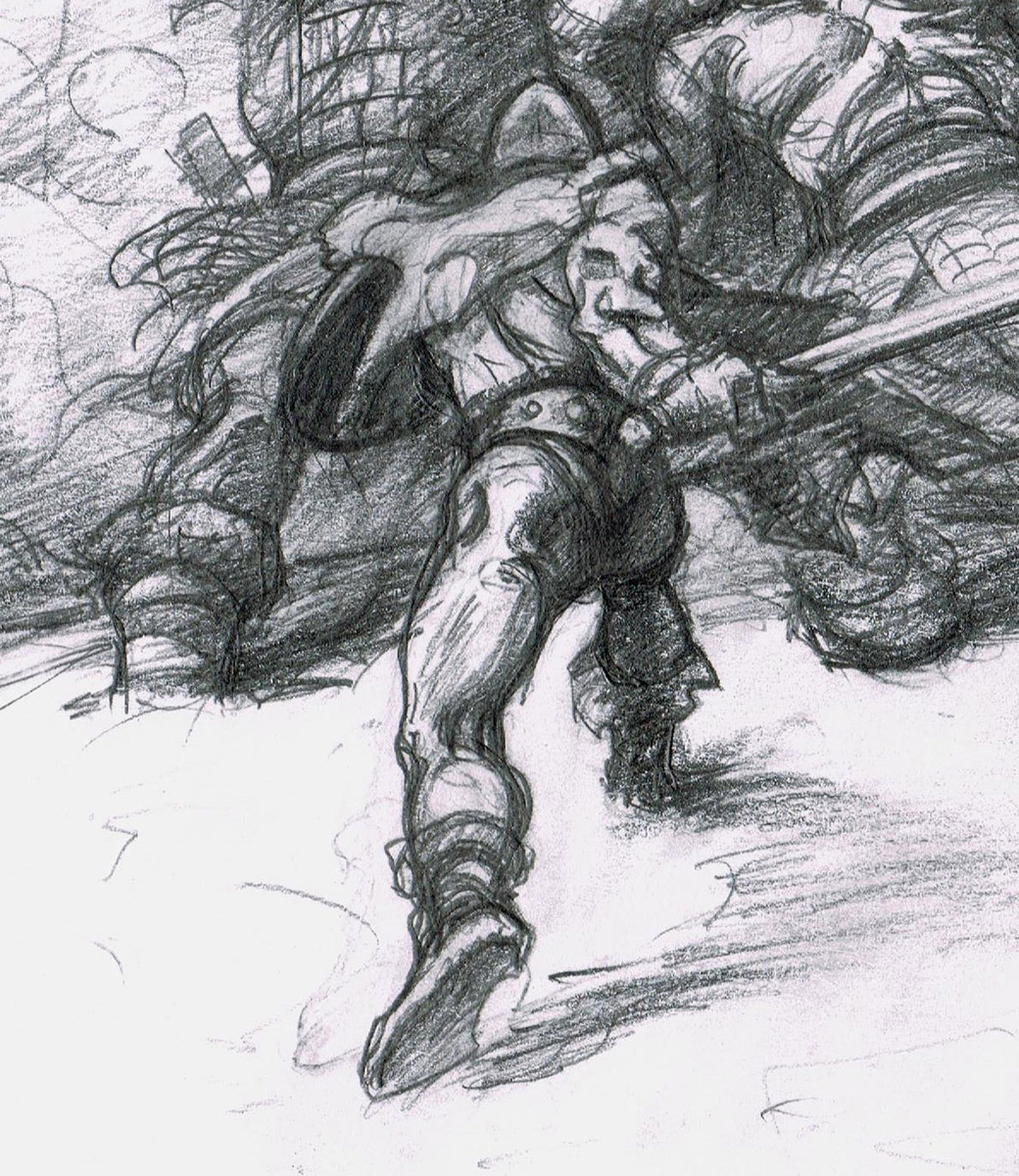
Petar, thanks a lot for sharing your wonderful insights and truly masterful work! I've been a huge fan for a while and can't seem to get enough of your work. Please post more frequently on MC 🙂
Awesome new work and post Petar- I really think the growing pains you've talked about are showing up strongly. These new paintings feel very personal and almost heavy in how they're handled. Thank you for sharing!
Thank you Koushik! As for more frequent posting, it will depend on the response from the MC public to my new work, I suppose. Nevertheless, you can always find me on Facebook…Cheers!
“…true affirmation of self can only be expressed in sacrifice”, to cite Tarkovsky once again. Or, “Per aspera ad astra”, as the Romans used to say. 🙂 Thanks, Katie!
Simply incredible! Im very interrsted in your method of painting each individual area to completion before moving to the next. Most of my art professors hate it when i try to do that. Is that something you learned to do on your own, or can you only do that now after years of painting in the “conventional” method?
Some nice advice and words of wisdom in there. I think we all have our challenges and difficult times during our careers. As we overcome and grow stronger with each obstacle we conquer our art becomes deeper and stronger in meaning and execution. Thanks Petar!
Amazing work and wonderful writing! I love the deliberate nature of your brushwork.
For an art student this is generally speaking a wrong way of working on a painting. One needs to have lots of experience and skill in order to ‘reach the right place by walking the wrong paths’, so to speak. Working simultaneously on the various areas of the painting is much better and safer.
When painting each individual area to completion before moving to the next, a thorough preparation and an appropriate reference material is crucial. Above all, such painting technique has to fit your own sensibility and your character. Still, it remains a tricky and often stressful way of painting, especially when combined with a loose and expressive way of paint application. Until relatively recently, I was doing a quite elaborate underpainting each time I started a new piece. But then I got tired of it and also discovered I did not need it anymore. The time I used to spend on underpainting, I am now spending on preparing the proper reference material.
Exactly, John. There is no other way…Thank you!:-)
Thanks, Howard!
Petar, these are magnificent works, real upticks from your previous work, which is saying quite a bit. I see you still love heavy, thick impastos, one of your strengths and a real showcase for your experience and technique. Well done. Grateful to hear of your journey.
I'm just glad you are painting and posting again, Petar.
I always love your posts Petar and your artwork is breathtaking!
Beautiful work. Thanks for insights.
Thank you, guys, for being kind and supportive! 🙂
Thanks a lot for that post Petar, this is a very deep an meaningful statement you put here.
We're living in a time saturated with tutorials, technical approaches and formal studies of pictures.
Reading someone like you talk about soul, emotions and the spiritual goal of art is a rare gift and i will read that post again and again to be sure not to miss any points of it.
As a young artist coming from video game industry that wisdom resonates a lot because it's something that was completely off the charts when i started to work.
Now that i am freelance i try to connect myself to that path and having guides like you is a precious thing.
You are very welcome, Johan! Well, here is how I see the problem – generally speaking, every time when there is a lack of true content in a system, there is a tendency of shifting the attention towards the surface, often overrating its value and purpose. This is a compensatory behavior that happens all the time. However, some things cannot be replaced, they are of a different nature. One cannot replace body with spirit, and vice-versa. We need both. Tutorials and formal study of art are good, useful things, but they actually lose their meaning if disconnected from the emotional and spiritual foundation of art. Just as with people, art that lacks the soul, and in spite of its dazzling surface (technique), becomes hollow. Stressing the importance of both the spiritual foundation and the technical aspects makes a more balanced, healthy and enduring art…Thank you, Johan!
Thank you for your wisdom and encouragement.
Good grief, Petar, these paintings are gorgeous!! If I can be so bold, I think the thing I love most about these is that while they exhibit superb technical skill, they also have that bit of “magic” just underneath…in my mind echoing the work of J.W. Waterhouse.
You're welcome, Lucas!
Well, some years ago, J.W. Waterhouse was one of my “mentors”. I was always attracted to the ideas and art of the Pre-Raphaelites. In fact the ideas of the Romanticism, that they articulated so beautifully in their art, is something I feel very connected to. Moreover, I am quite sure that, after some 200 years, we are again up to another revival of some of the ideas of the old Romantics. Their society faced more or less the same issues as we face today….Thanks!
I like your article and insight, sir!
Thanks, Jeff!